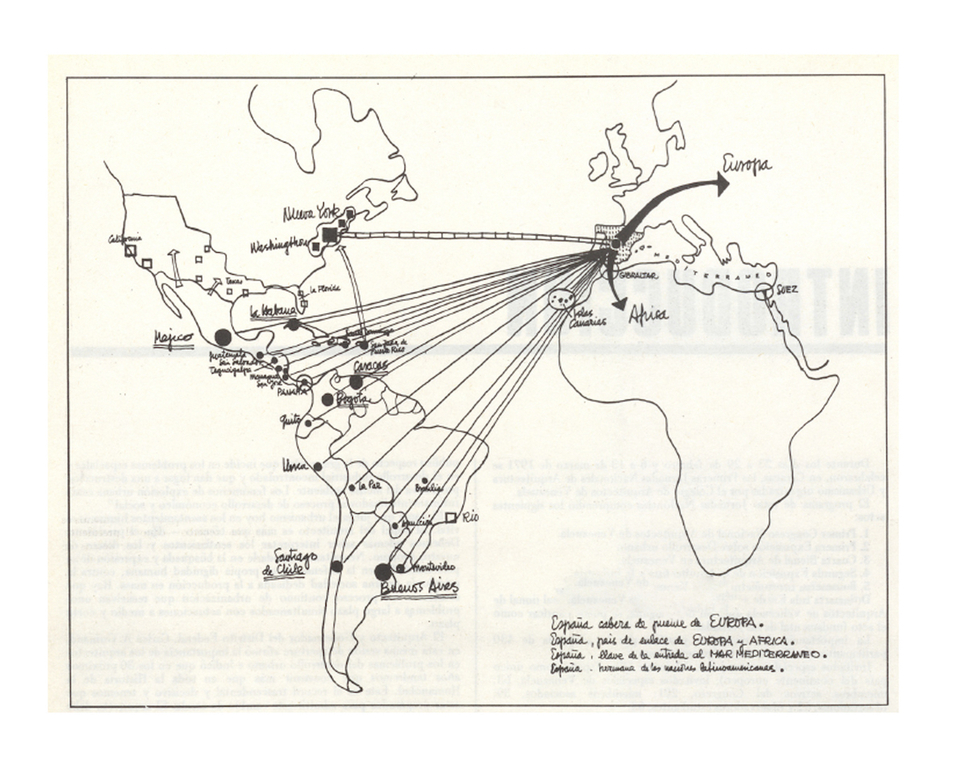he / him / his
PhD Candidate, History and Theory of Architecture, Princeton SoA
Guillermo S. Arsuaga, an architect and Ph.D. candidate at Princeton University School of Architecture, explores the junctions of architecture, power, and territorial management, particularly within the intricate geopolitical landscapes of the 1960s and 70s. In the 2022-2023 academic year, he was honored with the Mellon-Marron Research Consortium Fellowship, held at the Architecture and Design Department at the Museum of Modern Art in New York.
Arsuaga's ongoing doctoral dissertation, “Island Exceptions: The Construction of a Minor Empire in the Late Francoism,” positions architecture as a critical instrument within the global resonances of power and territorial strategy during the 1960s and 70s. While framing late Francoist Spain (1959-1975) as a notably stark case, his exploration into the strategy of “islanding” is laid bare against the tumultuous mid-20th-century global backdrop. “Islanding,” as a rigorous analytical lens, signifies the calculated carving out of “zones of exception” in Spanish peripheries and African territories, thereby fueling capital expansion, environmental extraction, and resource exploitation amid the entwined global dynamics of Cold War machinations, and an era potently marked by decolonization. Here, case studies delve into African settlement expansion, resource extraction in Africa, and tourist developments in Spain, weaving them into the broader network of governmental representation and power and energy development. Concentrating on architecture’s intricate negotiation between the escalating demands of economic and global aspirations and a domestically snarled dictatorial sovereignty during Spain’s intense and rapid modernization period, the discourse deftly steps beyond a solely Spanish narrative. It establishes Francoist Spain not merely as a subject but rather as a pivotal case: it exemplifies a dictatorial backdrop that nonetheless mirrors the economic and territorial ambitions of its Western democratic counterparts. Thus, his research introduces “islanding” as a distinctive architectural process and colonial technique, providing a fresh scholarly perspective to explore global architectural interventions — developed for Western capital and resource extraction — amid the Cold War and emerging decolonial movements.
Arsuaga’s scholarly contributions have been featured in publications such as Thresholds, Drawing Matters, MoMA Posts, E-flux Architecture, and more. His pedagogical journey spans various institutions, where he has taught graduate courses, including Columbia University GSAPP, Princeton University SoA, and the Architectural Association in London. Beyond the confines of academia, Arsuaga’s impact echoes through various domains. His work has gained international acknowledgment, evidenced by exhibitions such as the 16th Architecture Venice Biennale and the 2016 Gothenburg International Biennial of Contemporary Art. Organizations, including the Swedish Committee for Contemporary Art, the Princeton Institute for International and Regional Studies, the Center for Digital Humanities, and the Mellon Foundation, have endorsed Arsuaga’s endeavors through their support.




